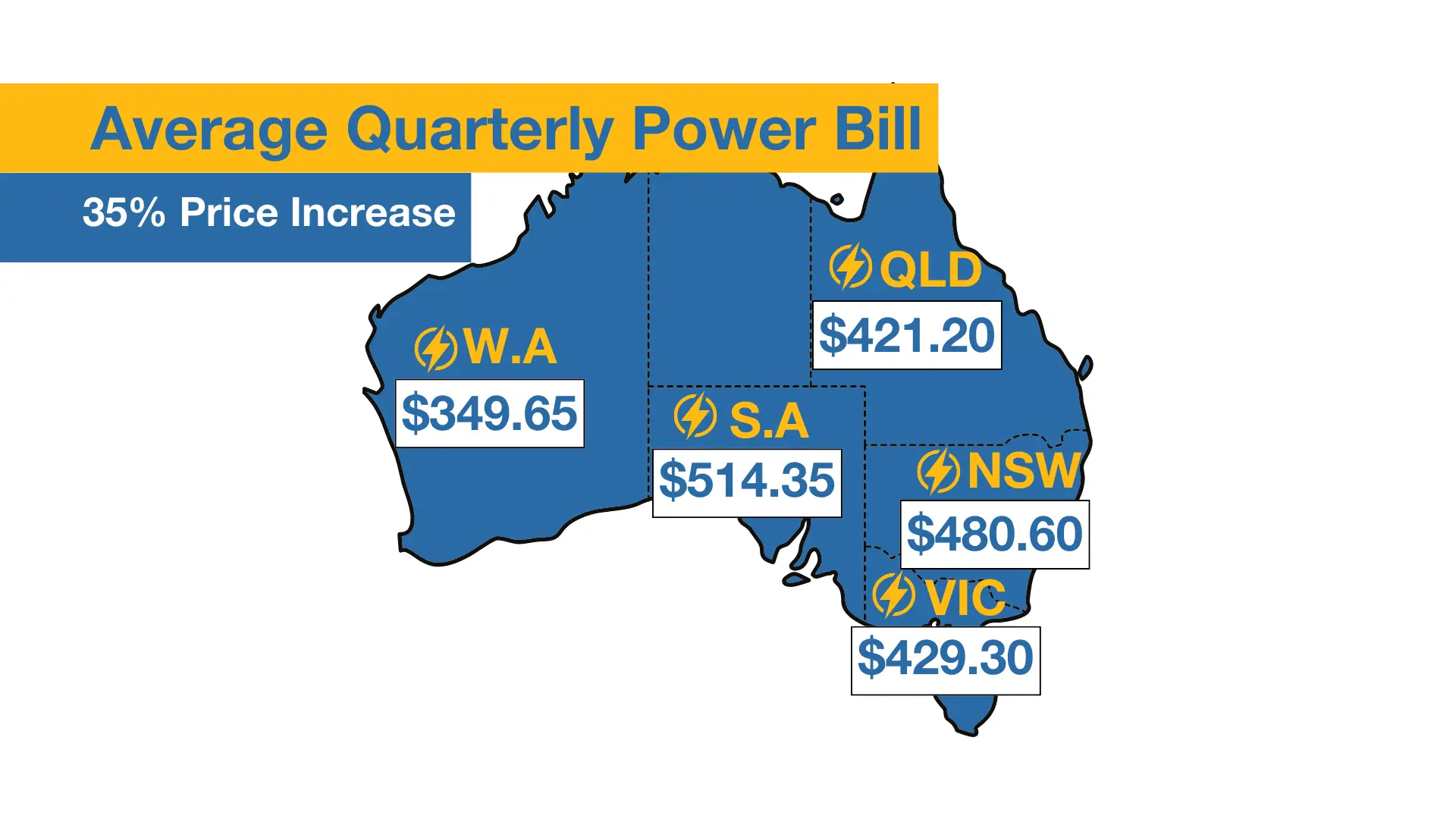There are many ways to bring light, heat, and electricity into our homes. Today, more and more people are leaning towards renewable energy sources, not just because they’re better for the environment but also because they can be much more cost-effective and sustainable if used correctly.
Solar is one of those energy sources, and in the year 2020, 9% of Australia’s energy generation came from solar. But what exactly is solar energy? Why should anyone care? And how can you start using solar to power your own home? Let’s find out.
What Is Solar Energy?
Simply put, solar energy is energy derived from sunlight. An unbelievably massive ball of burning gas, the sun is the largest body in our solar system and produces enormous energy.
When we harness the power of the sun using tools like solar panels, we can convert that power into thermal or electrical energy which can be used to power our homes and cities.
One of the main benefits of solar is that it’s incredibly widely available, especially in countries like Australia where sunny days are common. Solar is also highly sustainable and is much better for the planet than fossil fuels like coal, oil, and gas.
Why Is Solar Important?
Every second, the sun produces enough energy to provide the earth with 500,000 years worth of power. If we can effectively harness this resource, we can easily provide homes, cities, and entire countries with huge amounts of clean, renewable energy.
Australia — a country with a vast landmass and lots of sunlight — receives about 58 million PJ of solar radiation per year. That’s 10,000 times more energy than Australia consumes in the same time frame. Think about that: Australia only needs to harness 0.01% of its solar energy to power the entire country.
Here are some of the main benefits of using solar to power your home:
- You can make significant savings on energy bills by producing your own energy. Even though solar panels cost money to install, they typically pay for themselves over time and result in major savings in the long run.
- You may be eligible for financial incentives like benefits from the government if you install solar panels
- You’ll do your bit for the environment by using less non-renewable energy and producing less harmful pollution
- You could increase your home’s resale value — houses with solar panels are often worth much more
We’re making good progress — today, there are at least 92.7 billion solar panels in use throughout the world, and those panels are becoming more efficient. Solar panel efficiency has increased from just 6% in 1954 to more than 40% on the highest-efficiency panels today.
How To Harness Solar Energy In Your Own Home
So how can you tap into the huge amounts of solar energy beating down on your home and start getting the benefits?
The answer is solar panels. You’ve almost certainly seen solar panels before — they’re usually arranged on the roofs of buildings where they get most uninterrupted exposure to the sun.
Solar panels work by capturing available sunlight and converting it to DC power, which is then further converted to AC power (by means of a device called an inverter) so it can be used in the electrical grid to power our homes.
You can store solar power, too, in batteries. This is a great option if you receive more solar energy than you need during sunny seasons, and your needs exceed your supply at different times of the year.
At Snap Solar, we can help you set up your own solar panel system designed to tap into the impressive solar resources of North Queensland. We’ll talk you through the best approach for your home and area and teach you the basics of maintaining and managing your equipment. Contact us to find out more and get started.
get a free
quote
Complete the form and our team will
contact you to arrange a site visit or
give us a call on 1300 076 279
Related Articles.

How Long Will My Solar Battery Last During a Power Outage?

Jackson Wyer

Energy Costs Are Skyrocketing – Is Solar the Affordable Solution?

Jackson Wyer

LGCs vs STCs: Understanding the Difference Between Renewable Energy Certificates

Jackson Wyer
